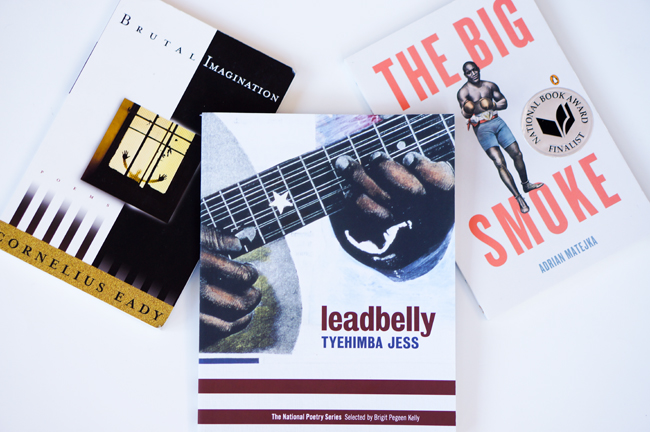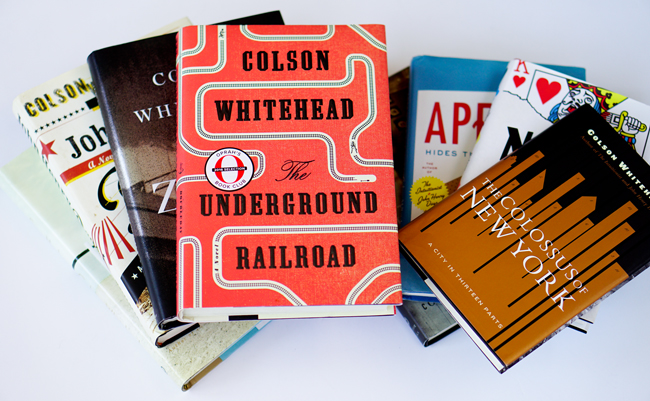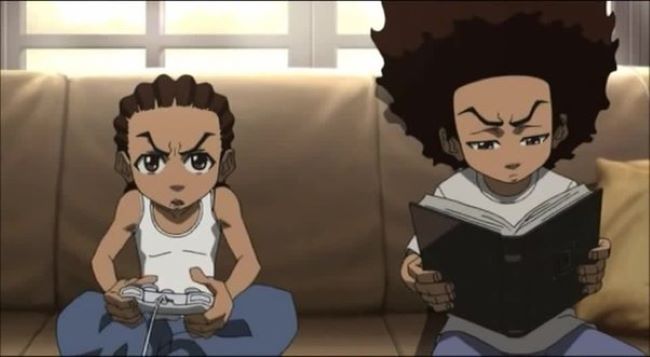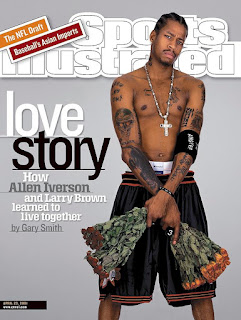Here's a partial timeline of works, published since 1999 that I cover in my book Bad Men.
1999: Aaron McGruder launches syndicated comic strip,
The Boondocks.
2001: Colson Whitehead publishes
John Henry Days.
2001: Ta-Nehisi Coates publishes "The Last Angry Man."
2001: Kevin Young publishes
To Repel Ghosts: Five Sides in B Minor.
2001: Cornelius Eady publishes
Brutal Imagination.
2002: Amiri Baraka performs his poem "Jungle Jim Flunks His Screen Test" on April 6.
2003: Aaron McGruder publishes A Right to be Hostile: A Boondocks Treasury.
2003: Amiri Baraka publishes Somebody Blew Up America & Other Poems.
2005: Aaron McGruder’s The Boondocks television series premiers.
2005: Tyehimba Jess publishes Leadbelly.
2005: Kevin Young publishes To Repel Ghosts: Remixed from the Original Masters.
2006: Opal Palmer Adisa publishes "Peeling Off the Skin."
2006: Evie Shockley publishes "From the Lost Letters of Frederick Douglass."
2006: Vievee Francis publishes Blue-Tail Fly.
2008: Ta-Nehisi Coates publishes
The Beautiful Struggle.
2008: Kyle Baker publishes
Nat Turner.
2008: Ta-Nehisi Coates publishes "‘This Is How We Lost to the White Man.’"
2010: Jay Z publishes
Decoded.
2012: Colson Whitehead publishes "A Psychotronic Childhood: Learning from B-movies."
2012: Ta-Nehisi Coates publishes "Fear of a Black President."
2012: Trymaine Lee begins
publishing articles about the killing of Trayvon Martin on March 8.
2012: Ta-Nehisi Coates begins
blogging about Trayvon Martin on March 13.
2012: Reginald Flood publishes
Coffle.
2013: Tony Medina publishes
Broke Baroque.
2013: Mark Anthony Neal publishes
Looking for Leroy: (Il)Legible Black Masculinities.
2013: Adrian Matejka publishes
The Big Smoke.
2013: Reginald Harris publishes
Autogeography.
2013: Jason McCall publishes
Dear Hero,.
2014: Trymaine Lee begins
publishing articles about the shooting death of Mike Brown on August 11.
2015: Ta-Nehisi Coates publishes Between the World and Me.
2015: Paul Beatty publishes The Sellout.
2015: Jay-Z performs "Tidal freestyle."
2016: Ta-Nehisi Coates publishes Black Panther #1.
Note: For a 30% discount, use the promo code 10FEB23 when and if
purchasing the book on the University of Virginia Press site. (For February 2023 only).




























